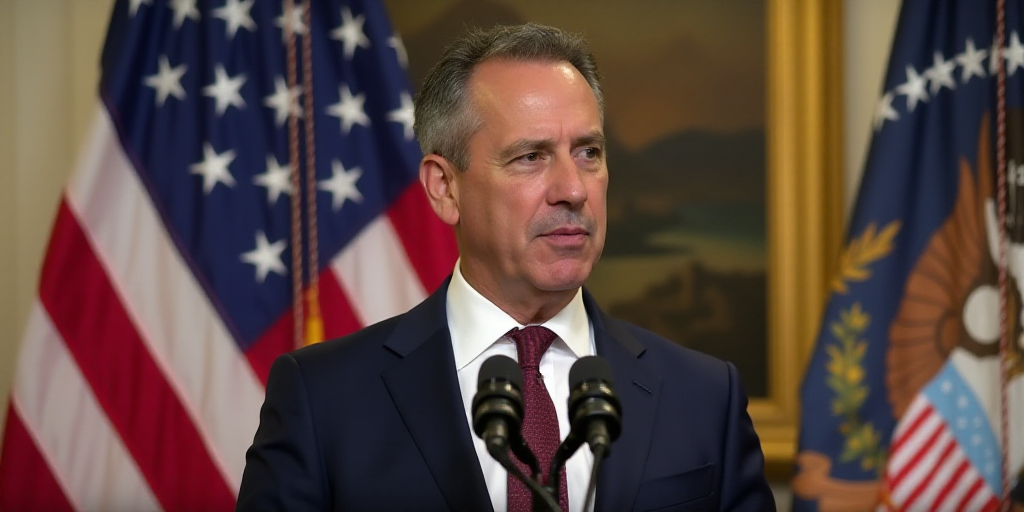Who are these opposition members?
Five Venezuelan opposition members, who had been in the Argentine embassy in Caracas for over a year, have left the diplomatic building and unexpectedly arrived in the United States following an operation led by Washington, with Venezuela yet to comment.
Background of the Opposition Members
All five are associated with opposition leader María Corina Machado. Initially, there were six refugees; however, Fernando Martínez Mottola left the embassy in December 2024 and received conditional freedom. He passed away on February 26 due to health issues.
Those remaining in the embassy included Magalli Meda (Machado’s right-hand person and campaign chief), Pedro Urruchurtu (international coordinator of Machado’s campaign command), Claudia Macero (communications manager), Humberto Villalobos (electoral coordinator), and Omar González (a member of the Vente Venezuela party’s leadership).
Refuge in the Embassy
The opposition members sought refuge on March 20, 2024, amidst a series of arrests leading up to the July 28 elections. Following these elections, in which Nicolás Maduro was declared reelected amidst oposition claims of fraud, the group faced an arrest warrant for allegedly attempting to “generate instability” and encourage a military uprising.
For five months, they reported an “encirclement” by police outside the Argentine residence until at least two weeks ago, according to opposition claims. They reported prolonged power outages, limited generator usage, disrupted water service, and obstacles in delivering food and medicine.
The Venezuelan government denied these claims of “encirclement.”
Diplomatic Crisis
Venezuela severed ties with Argentina and other regional countries following questions about Maduro’s reelection for a third consecutive six-year term. Venezuelan diplomats left the country, with Brazil assuming Argentina’s diplomatic representation. Caracas later revoked these permits but continued defending Argentine interests.
Relations further deteriorated after the December 2024 detention of Argentine gendarme Nahuel Gallo, who was planning a visit to his partner and two-year-old child in Venezuela.
Negotiation or Escape?
According to the opposition, the government denied them safe-conduct passes until the last minute. U.S. Secretary of State, Marco Rubio, stated it was a “precise operation” without providing details. Brazil mentioned working “numerous times” to secure safe-conduct passes and offering to extract the asylum seekers “to diplomatically resolve the crisis.”
However, these repeated attempts were ignored, prolonging the difficult humanitarian situation at the embassy residence surrounded by security forces, according to Brazil’s foreign ministry.
Venezuela has not commented, but sources linked to chavismo suggest it was a negotiation. Machado’s campaign chief reportedly expressed willingness to negotiate her exit, while Interior Minister Diosdado Cabello denied this possibility.
The opposition members’ departure coincided with Caracas criticizing the U.S. for deporting approximately 253 Venezuelan migrants to El Salvador’s Terrorism Confinement Center (Cecot) following their stay in the U.S.
Salvadoran President Nayib Bukele proposed exchanging these migrants for an equal number of political prisoners, including the embassy asylum seekers. Venezuela rejected this proposal, with Maduro accusing Bukele of being a “systematic violator” of human rights.
The U.S. and Venezuela have previously exchanged prisoners. In late January, six Americans detained in Venezuela were released following negotiations between the two countries. In December 2023, the U.S. freed Álex Saab, accused of being Maduro’s frontman, in exchange for 26 prisoners in Venezuelan jails.
Key Questions and Answers
- Who are the Venezuelan opposition members who left the Argentine embassy? They are collaborators of María Corina Machado, including Magalli Meda, Pedro Urruchurtu, Claudia Macero, Humberto Villalobos, and Omar González.
- Why did they seek refuge in the Argentine embassy? They sought asylum amidst a series of arrests leading up to the July 28, 2024 elections following allegations of fraud.
- How did they leave the embassy? They left following an operation led by Washington, with Venezuela yet to comment on the situation.
- What was the diplomatic crisis between Venezuela and Argentina? It stemmed from questions surrounding Nicolás Maduro’s reelection for a third consecutive six-year term, leading to severed diplomatic ties and the departure of Venezuelan diplomats.
- Was there a negotiation or escape? The opposition claims the government denied safe-conduct passes until the last minute, while Brazil suggested working to secure these passes. Sources linked to chavismo imply it was a negotiation.






